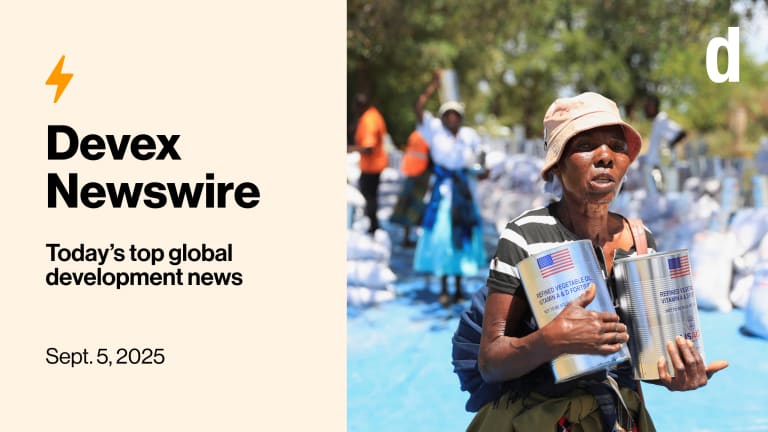We take a look at how a cholera bug circulating in Pakistan ended up ravaging Malawi.
Also in today’s edition: Finally, some good news for U.K. aid policy, and how ringing for a pizza can help save a life in Zimbabwe.
Listen: In the latest episode of our weekly podcast series, Devex Managing Editor Anna Gawel sits down with our resident U.N. expert Colum Lynch to discuss the key issues to look out for at the 78th session of the United Nations General Assembly. Plus, keep an eye out for our UNGA preview and wrap-up special newsletter editions on Sept. 18 and 25, respectively.
Printing articles to share with others is a breach of our terms and conditions and copyright policy. Please use the sharing options on the left side of the article. Devex Pro members may share up to 10 articles per month using the Pro share tool ( ).








